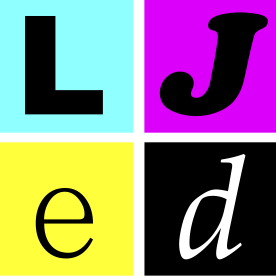 I haven’t blogged so much in the past few months. I’m quite relaxed about that – I don’t hold myself to a strict schedule, and prefer to put up a post when I have something particular to say. However, recently it fell by the wayside for another reason – I was finishing the first draft of my second novel, and that took all my spare time. (The first novel, written earlier this year, I am choosing to think of as a warm-up, unless anyone out there is actively looking for a tale of a drug-fuelled-yoga-weekend-cum-eco-apocalypse narrated by a middle-aged divorcée who thinks she’s Holden Caulfield. No?)
I haven’t blogged so much in the past few months. I’m quite relaxed about that – I don’t hold myself to a strict schedule, and prefer to put up a post when I have something particular to say. However, recently it fell by the wayside for another reason – I was finishing the first draft of my second novel, and that took all my spare time. (The first novel, written earlier this year, I am choosing to think of as a warm-up, unless anyone out there is actively looking for a tale of a drug-fuelled-yoga-weekend-cum-eco-apocalypse narrated by a middle-aged divorcée who thinks she’s Holden Caulfield. No?)
I’ve learned a lot of useful stuff from pursuing my own writing alongside regular editing work (no, I can’t yet afford to give up the day job). Much of what I have found out I hope to use to inform future creative writing endeavours. But some of my lightbulb moments will also feed back into my practice as an editor.
Here are five things I’ve learned:
- WRITER LIGHTBULB: In a long manuscript, repetition is probably inevitable. This can happen at a macro level (themes and scenes that recur), and at a micro level (words and phrases that are overused, or unusual similes that are considerably less arresting on their third outing). As an editor I often encounter writerly tics in otherwise very clean, well-written manuscripts – certain constructions that just keep popping up. And in the past these would always puzzle me. ‘Can’t they see what they’re doing there?’ I would mutter under my breath. Well, the answer is, probably not. EDITOR LESSON: Repetition happens, no matter how careful the writer. Enjoy the frisson of doing your job, fix it … and get over it.
- WRITER LIGHTBULB: Continuity errors are completely normal. For example, I am amazed by the fact that even though the beginning parts of my novel only burst into existence back in the summer, there are stonking great passages that I have entirely forgotten writing. To me, this emphasises the near-certainty that there will be continuity errors in a manuscript of any kind above a certain length. I have quite a high capacity for retention of written information, as editors do, but even I simply can’t hold a whole novel in my head, even though it all came out of my head. There are just too many words, and I’m human. EDITOR LESSON: Be sympathetic to the differences between writing and editing. Writing fiction really can be a bit like being in a trance, but good editing is quite the opposite. It’s not possible to do both at the same time, and it’s important to get the best out of multiple passes.
- WRITER LIGHTBULB: Distance from the work is essential. Never before have I felt so convinced of the need for psychological distance from a piece of work in order to edit it – either through time, or by being completely dissociated from the creation of the work, or preferably both. Case in point: right now I can hardly bear to look at the thing. It makes me feel positively queasy. And I’m not ready to show it to anyone else just yet either. EDITOR LESSON: If ever I need to sell my services to someone new, an important point is the complete objectivity I provide. People used to hiring editors know this already; those yet to be convinced might not.
- WRITER LIGHTBULB: It’s hard to let go. Having said I can’t stand to look at it, it’s also my baby. In the past, in common with most editors, it’s just possible I might have been guilty of moaning about certain very difficult authors, or even being less than sympathetic about their reluctance to make changes. Well, those days are officially gone, I swear. Finally, I totally get it. If I ever get to the point of submitting my baby to the tender ministrations of a copy-editor, I just know I am going to morph into that nightmare author myself (though I’ll try my best to be nice; editors are people too). EDITOR LESSON: Always, always, be sensitive in dealings with authors. I know it’s hard to believe, but they’ve usually put a lot more into their work than we have, in terms of hours and soul.
- WRITER LIGHTBULB: Coffee helps massively. But not just coffee; for me it’s part of a larger routine, which has helped me sit down and do it, day after day. Just like being a freelance editor, you have to show up and put in the time, whether you feel like it or not, if it’s got any hope of being viable. EDITOR LESSON: Mmm, coffee. Did someone say coffee? Are you making?
Liz Jones has worked as an editor in the publishing industry since 1998, and has been freelance since 2008. When she grows up she also wants to be an author.


Lovely blog Liz and very resonant for someone who would like to think of himself as writer-editor-proofreader (not to mention blogger-marketer-entrepreneur-dogservant) in the same breath. The disciplines (I mean writing-editing not dogserving) are different but it is reassuring that you, like so many others in the editorial world, think wearing both hats is a natural thing. It is empowering, thanks.
LikeLiked by 1 person
Thanks, Howard! I’m glad you enjoyed it.
LikeLike
This is really valuable advice coming from someone with experience of both sides. I probably won’t stop cursing and rolling my eyes when I edit, but at least I’ll have a better understanding of why the author wrote something a certain way.
LikeLike
Thanks, Valerie. 🙂
LikeLike
Loved these tips, good reminders of how we are all in this together and merely change costumes depending on the dance. Thank you!
LikeLike
Thanks very much – I’m glad you enjoyed it!
LikeLike
Sorry, I only made one cup and I just finished it (truth!).
Thank you. This is really believable and valuable. I’ve only done spelling, grammar, and clarity editing do far, and on short pieces, but I’ve always said it’s axiomatic that you can’t edit your own writing.
LikeLike
Thanks … I do agree, for longer pieces. I confess, I edit and proofread my own posts for the blog, but that’s usually because blog posts are transient, and I usually want to put them up immediately. For a long piece of writing, I can see I will need more help. (My first reader is my husband, who is not a professional editor but very good at the substantive stuff especially.)
LikeLike
As an editor and aspiring writer, I really appreciate these insights. They certainly jibe with my own experience. I’ve always believed that writing and editing use different parts of the brain.I was also married to a writer for many years, and eventually edited all his books, which made me very sensitive to the tenderness of a writer’s ego. And yet in my editing role, I can sometimes get fed up and become a real smart aleck about manuscript flaws. Thanks for the reminder that we are handling someone else’s precious creation and trying to help make it good as it can possibly be.
LikeLike
Thanks for the comment, and I am glad you enjoyed the post! I think there are a lot of us about (who do both).
LikeLike
This was the perfect thing for me to read right now. I have a copy editor’s commented draft of my novel manuscript that I have not yet opened sitting on my hard drive, but plan to get reviewing today. I just finished NaNoWriMo, so switching from writing mode to editing mode will take some adjustment (and much coffee), but your insights have really helped me prepare to look at the edits.
LikeLike
Well done for doing NaNoWriMo! I took about four or five times as long with this book (so far) … maybe next year I will try it too.
LikeLike
It was fun once I got going! I just made a post to my blog with tips on tackling NaNoWriMo, for writers still considering it. 🙂 https://expansionfront.com/2016/12/03/8-things-i-learned-from-nanowrimo/
LikeLike
Generous and insightful.
LikeLike
Thank you! 🙂
LikeLike